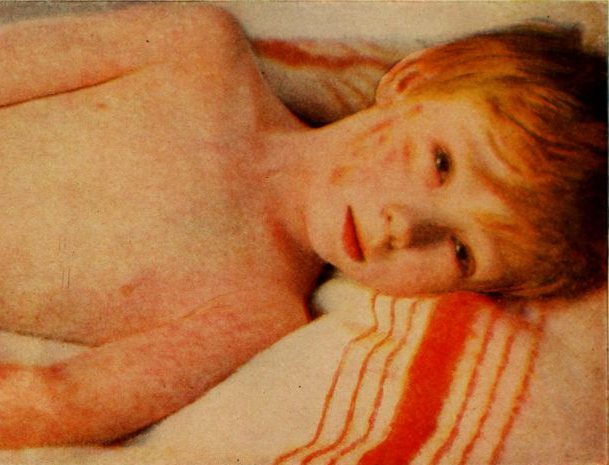Here’s how measles wipes out the immune system’s memory

Enlarge / A child with measles. (credit: Greene, Charles Lyman)
As every parent knows, kids spend their early years exploring the world with their mouths, gumming every germ-riddled object within reach and sampling their ever-sticky fingers. If left to their own devices, it seems likely they would taste-test door knobs and lick the floors of public bathrooms.
However horrifying, their slobbery ways have an upside-building up immune defenses. Their daily buffet of germs provides their immune systems with thorough intel on countless microscopic enemies. The dirt on the germs is enough to train immune cells to produce Y-shaped blood proteins called antibodies that can detect individual foes based on unique molecular patterns. From there, armies of antibodies act like security guards, surveilling the body for specific, pre-identified threats. Any time they recognize an invader, they can sound the alarm and lead a strike.
Thus, the drool-based defense system arms kids with a bulwark against a wide range of bugs that commonly float around daycares, schools, and beyond. Of course, for some particularly nasty diseases, vaccines do the work of a grimy mitt-safely. They prime the immune system to make antibodies that lead to longstanding protection, sans severe infections.
Read 13 remaining paragraphs | Comments